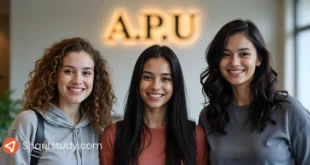APU MSc Accounting in Forensic Analysis program frequently includes percentage analysis and examination of significant financial reports. This helps point out which elements of the financial statements are ‘at risk’ of being manipulated by management; this is much more revealing (and efficient) than simply reading the financial statements from front to back. The cash flow statement is the most analyzed since it provides an indication of earnings quality and connects the income statement and balance sheet.
To find out if a company’s stated performance and position are a true reflection of its “true” performance and position, forensic accounting analysis closely examines its financial statements. Students can use either private or public information in this analysis, depending on the needs of the deal.
The Advantages of Program
Student’s Skills After completing this program successfully :
- Demonstrate an advanced knowledge of the concepts, principles of forensic accounting theory, and understand the legal framework of forensic accounting services and the roles and responsibilities of the forensic accountant.
- Understand and correctly respond to ethical issues in the field of accounting by incorporating appropriate professional codes of conduct and social responsibility.
- Conduct successful investigations and communicate effectively in writing and orally both in and out of the courtroom with respect to a variety of criminal and civil financial issues.
- Develop a mindset of professional skepticism, using critical thought and creative approaches to complicated problem solving.
- Gather and analyze quantitative and nonquantitative evidence, plan and conduct a research project in a professional and ethical way which needs familiarity with a range of data, research sources and appropriate methodologies.
- Create, evaluate and assess a range of options together with developing the ability to apply ideas and information to a range of situations.
Who Would Benefit from Attending?
APU MSc Accounting in Forensic Analysis is appropriate for any new graduate who seeks a career in the delightful and developing field of forensic accounting and fraud examination, as well as accountants and auditors who want to pursue or advance their career as forensic accountants. This program blends the accounting, auditing, and investigative skills required to produce analysis and outcomes suitable for use as the basis for resolution by the courts.
Program Outline
The program aims to teach students:
- A dynamic, strict, and interesting study structure that will provide students with the knowledge and abilities required in this field.
- To fulfill the present financial market demands, forensic accountants must have legal and ethical understanding.
- Accounting and finance-related FinTech knowledge and technical skills.
Courses
This program includes 13 academic units (including 1 on research methodology) and a project. This program’s courses will give the information and analytical abilities required to identify and apply the law, organizational standards, evidence, and ethics in forensic accounting.
Core Courses
- Quantitative Methods for Decision Making
- Managerial Finance
- Management Accounting for Decision Making
- Management Control and Audit
- Financial Accounting and Reporting
- Forensic Accounting and Fraud Examination
- Forensic Accounting Engagement
- Financial Statement Fraud
- Accounting Information Systems
- Research Methodology
- Anti-Money Laundering
- Cybercrime and Investigation
- Criminology and Legal Framework
- Project
Project
Students will be expected to participate in detailed research through a critical assessment of published literature related to Accounting in Forensic Analysis. Thorough review is carried out on theoretical and empirical literature from which a conceptual or theoretical framework is derived. Sources of reading will range from academic publications, company case history and consultancy reports. Existing ideas and research findings will be applied to produce solutions or possibilities to solve difficulties in today’s worldwide business climate. Identification of such possibilities or problems will be essential components in current corporate strategy and planning. Business case history will be employed to explore and analyze either the tactics of a business or the application of specific concepts, theories or methodologies as well as analyze the efficacy and results. The research reports will be employed to evaluate current difficulties faced by any number of companies and to offer techniques and actions to be performed by the organization(s). Case study would be the key focus point of information delivery for this course.
APU-DMU Dual Degree
Students enrolled in the Masters Degree Program will have the option to participate in the APU-DMU Dual Degree Scheme. Students will receive two Degree Certificates and Transcripts upon graduation under this Scheme: one from Asia Pacific University (APU) in Malaysia and one from De Montfort University (DMU) in the United Kingdom.
| Duration | Intakes |
| Full time (1+ years) | Full Time: 05 Feb 2024 | 04 Jun 2024 17 Sep 2024 |
Admission Requirements
| General Requirement |
|
|
|
English Requirements for International Students
- IELTS : 5.5
Career Options
- Forensic Accountant
- External Auditor
- Risk Department Manager
- Internal Auditor
- Chief Financial Officer (CFO)
- Forensic Investigator
- Investigative Accountant
- Audit Consultant
- Forensic Advisor
- Forensic Analyst
- Accounts Manager
Courses Fees
| Malaysian Students | International Students |
| RM 32,600 | RM 36,800 (USD 9,390) |
 SharifStudy Best way to Study in Malaysia
SharifStudy Best way to Study in Malaysia




